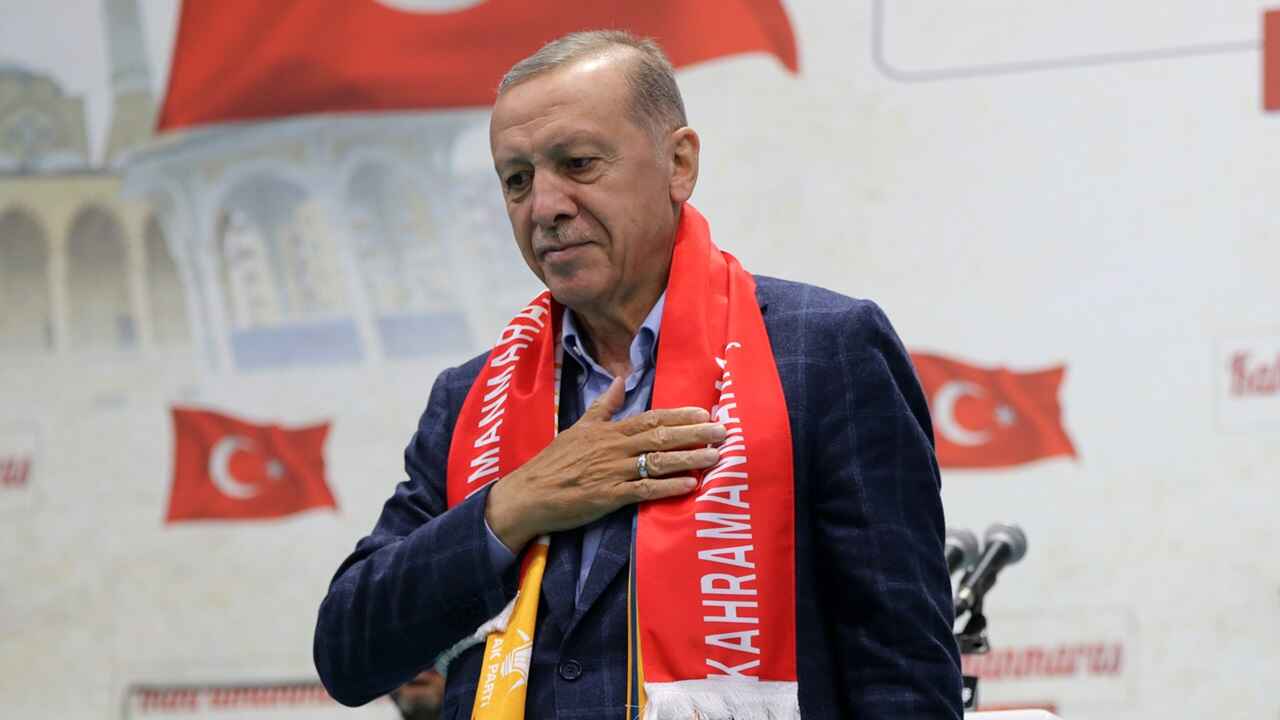Iraq is set to become a hot zone of proxy fighting between Turkish-backed Islamist militants and Iranian-backed ones.
Turkey finds itself between a geostrategic rock and a hard place. On the one hand, contrary to what its leaders say publicly, its security interests in the Middle East overlap in many areas with those of Israel. At the same time, though, Turkish leaders continue to stand in solidarity in public with the plight of the Palestinian Arabs. On the other end of the equation is the Islamic Republic of Iran. There is little doubt that Turkey, despite being a fellow Islamist power (albeit of a different ethnicity and sect of Islam), is a geostrategic rival of Iran’s.
In recent days, news emanating from the Middle East indicates that the Turks are intensifying their campaign against Kurdish forces in Eastern Syria, using their allies in Hay’at Tahrir Al Sham (HTS), the new Islamist government of Syria, to squeeze the Kurds. While the Iranians have no love for the Kurds or their struggle against Turkey, Iran understands that, inevitably, the Turkish assault will not be confined to the U.S.-backed Kurds of Eastern Syria. From Eastern Syria, Turkey and their regional Islamist partners will apply hard pressure on Iranian-backed Shiite militias in neighboring Iraq.
Indeed, Iraq is set to become a hot zone of proxy fighting between Turkish-backed Islamist militants and Iranian-backed ones. Turkey yearns to be the primary power within the Islamic community. Until recently, control of that community has been divided by the U.S.-backed Sunni Arab states, notably the Kingdom of Saudi Arabia, and the Shiite Islamic Republic of Iran. But the Arabs are taking a backseat to the current struggle, if only because they have deep internal problems to overcome.
Enter Turkey.
Turkey Playing for Keeps in the Mideast
The leadership of Turkey, under President Recep Tayyip Erdogan and his Islamist Justice and Development Party (AKP), is keen on restoring Turkey as the center of a new Ottoman Empire, with himself as its new sultan. A key area for the Turks to dominate is the Middle East. With the Arabs essentially taken out of this great game, it now comes down to an ancient animus: the Turkish Sunni Muslims versus the Persian Shiite Muslims for control over this region. Indeed, this has been in the works for some time.
Over the last decade, Turkey’s National Intelligence Organization (MIT) purged its entire Iran desk. After an internal investigation, it was determined that, since 2013, most members of the MIT’s Iran desk were, in fact, compromised by the Iranian Revolutionary Guards Corps (IRGC). This prompted Erdogan to initiate a crackdown on these elements. For all the talk about cooperation between Iran and Turkey over the years, at their core, the geopolitical relationship between Iran and Turkey is one of competition.
With the loss of Syria as a conduit for Iranian power, the movement of Israel into Syria, the presence of American forces inside both Syria and Iraq, and now the introduction of Turkey into the region, Iran is on the defensive. The Israelis did immense damage to Iranian proxies over the course of the last two years—not only Hamas, but also Hezbollah, and even the Houthis to a lesser extent.
As a cap to its offensive, Israel then blew up some of Iran’s vital Russian-built S-300 air defenses. It now looks as though Iran has replaced these destroyed systems, restoring their comprehensive, layered air defense network to some semblance of reliability. But Iran has never been weaker.
Where Turkey and Iran Go from Here
Now that Turkey is moving in force to the region, their ire will be fixated on Iranian militias in Iraq. The goal will be to roll back Iranian power to within Iran, as it was from 1979 until 2003, when the fall of Saddam Hussein’s Iraq allowed Iran to spread decisively across the region.
As the situation between Iran and Turkey deteriorates, it is possible that the Turks will even attempt to use their impressive intelligence capability to covertly assist enemies of the Iranian regime within Iran to overthrow the Islamic Republic. Turkey and Iran’s conflict with each other is set to define geopolitics of the Mideast for at least the next decade, with Turkey likely coming out as the victor of that campaign.
The only concern that should really keep Israelis, Arabs, the Kurds, and the Americans in the region up at night is: after Turkey defeats Iranian power, who will they turn on next? A betting man would say Israel, given all the caterwauling over the years coming from Erdogan and his AK Party about the mistreatment of Palestinian Arabs.
About the Author: Brandon J. Weichert
Brandon J. Weichert, a Senior National Security Editor at The National Interest as well as a Senior Fellow at the Center for the National Interest, and a contributor at Popular Mechanics, consults regularly with various government institutions and private organizations on geopolitical issues. Weichert’s writings have appeared in multiple publications, including the Washington Times, National Review, The American Spectator, MSN, the Asia Times, and countless others. His books include Winning Space: How America Remains a Superpower, Biohacked: China’s Race to Control Life, and The Shadow War: Iran’s Quest for Supremacy. His newest book, A Disaster of Our Own Making: How the West Lost Ukraine is available for purchase wherever books are sold. He can be followed via Twitter @WeTheBrandon.
Image: Wikimedia Commons.
